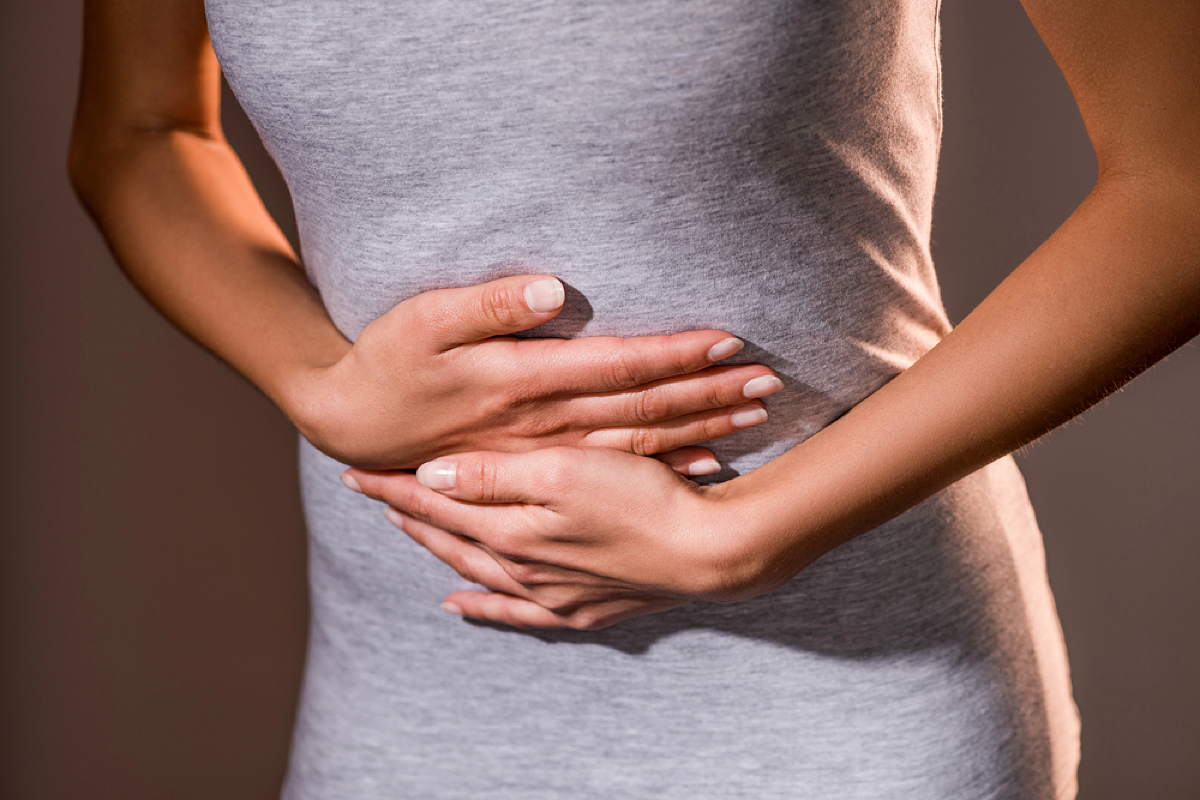What helps against stomach pain? Home remedies and tips
Abdominal pain is a common problem that affects people of all ages. The causes can be varied, from harmless digestive problems to serious illnesses.
Almost everyone has suffered from abdominal pain at some point, with symptoms ranging from mild discomfort to severe cramps. In this guide, you will find out which tried and tested home remedies and methods can help relieve abdominal pain.
We look at different types of abdominal pain and their causes to help you relieve them effectively and find out when a visit to the doctor is necessary.
Understanding abdominal pain: Types and symptoms
Abdominal pain is a complex symptom that can be triggered by various factors. The way in which abdominal pain occurs can be very diverse.
Different types of abdominal pain
Abdominal pain can manifest itself in different ways: stabbing, pressing, cramping or as a dull feeling in the abdomen. Depending on the type and location of the pain, different organs can be affected, which provides important clues as to the cause.
Typical accompanying symptoms
The typical accompanying symptoms of abdominal pain include nausea, vomiting, bloating, loss of appetite and changes in bowel movements. The intensity of abdominal pain can vary from mild to severe and can be constant or occur in episodes. Close observation of the symptoms and accompanying symptoms is helpful for a diagnosis.
Causes of abdominal pain at a glance
The causes of abdominal pain are varied and range from diseases of internal organs to emotional stress. To narrow down the cause of the discomfort, it is helpful to localize the pain.
Frequent triggers in the upper abdomen
Pain in the upper abdomen can originate from the organs located there, such as the stomach, duodenum, liver, gallbladder, spleen and pancreas. Typical diseases in this area are gastritis, heartburn, peptic ulcer or gallstones. These diseases can be triggered by various factors such as diet, stress or infections.
Typical causes in the lower abdomen
Pain in the lower abdomen, i.e. below the navel, often comes from the bowel. However, it can also indicate problems with the bladder, kidneys or genitals. The exact location and type of pain can provide clues to the underlying cause.
Psychological factors as triggers
Psychological factors such as stress, anxiety or depression can also trigger abdominal pain. There is a close connection between the gut and the psyche, which is why stress and other psychological strain can lead to physical symptoms in the abdominal area. It is therefore important to take a holistic view of the symptoms.
Immediate help: What helps with acute abdominal pain?
If abdominal pain occurs suddenly, there are some immediate measures that can help. In such cases, simple household remedies and behaviors can provide quick relief.
Heat as a quick aid
Heat can be very helpful for acute abdominal pain. A hot water bottle or a warm cherry stone cushion placed on the abdomen can relax the muscles and relieve pain.
Gentle postures
Certain postures can also help to alleviate the discomfort. Bending the legs slightly when lying down or sitting in a slightly forward position can reduce the pressure in the abdomen.
First measures for severe pain
If the pain is severe, the first measures include rest, applying heat and, if necessary, taking antispasmodics after consulting a doctor. It is important to listen to your body and react accordingly.
| Measure | Description | Effect |
|---|---|---|
| Heat | Place a hot water bottle or cherry stone cushion on your stomach | Relaxes the muscles, relieves pain |
| Posture | Bend your legs or bend them forward | Reduces the pressure in the abdomen |
| Rest and relaxation | Lie down and relax | Relieves stress and pain |
These immediate measures can help to alleviate acute abdominal pain. However, it is important to consult a doctor if the pain persists or is severe.
The role of nutrition in abdominal complaints
If you have abdominal pain, it is important to pay attention to your diet in order to minimize discomfort. The right diet can help to alleviate symptoms and support digestion.
Light diet for acute complaints
An easily digestible light diet is recommended for acute abdominal complaints. This relieves the gastrointestinal tract and does not put additional strain on digestion. Dishes that are not too fatty, sweet or salty are recommended.
Foods that can increase abdominal pain
Certain foods can cause abdominal pain and bloating. These include cabbage, pulses, onions and carbonated drinks. Alcohol and spicy foods should also be avoided, as they can irritate the stomach lining and exacerbate the symptoms.
Food should be chewed slowly and thoroughly to aid digestion and avoid abdominal pain after eating.
Food intolerances as a cause
If you have constant abdominal pain, a food intolerance or allergy could be the trigger. In such cases, the symptoms occur repeatedly after eating certain foods. Accompanying symptoms such as nausea, vomiting, fatigue and weight loss may also occur. Allergic skin symptoms such as itching can also indicate a food intolerance or allergy.
Recognize common intolerances
Food intolerances such as lactose intolerance, fructose malabsorption or coeliac disease (gluten intolerance) are common causes of recurring abdominal pain. Typical symptoms of intolerance include abdominal pain after eating certain foods, bloating, diarrhea or constipation, and general discomfort. It is important to recognize these symptoms so that appropriate action can be taken.
Diagnostics and dealing with intolerances
Food intolerances are diagnosed by exclusion diets, breath tests (e.g. hydrogen breath test) or blood tests. Once a diagnosis has been made, it is important to deal with the intolerance in a targeted manner, which usually means avoiding the triggering foods or taking special enzymes. It is estimated that around 20% of people are affected by food intolerances.
Treating abdominal pain in children correctly
Abdominal pain is very common in children and can be triggered by various factors. It is important to understand the causes so that appropriate measures can be taken.
Typical causes in small children
In infants, abdominal pain can be caused by various factors, such as three-month colic, intolerable foods or psychological factors. It is important to recognize these causes in order to support the child properly.
| Cause | Symptoms | Measures |
|---|---|---|
| Three-month colic | Screaming, restlessness | Warmth, gentle massage |
| Incompatible foods | Abdominal pain, diarrhea | Avoid food |
| Psychological factors | Abdominal pain, restlessness | Parental support, stress reduction |
Child-friendly home remedies
For mild abdominal pain, child-friendly home remedies such as a fennel-cumin-aniseed tea, a gentle abdominal massage or a hot water bottle can provide relief. These measures can help to alleviate the discomfort
When to take the child to the doctor?
Parents should take their child to the doctor if the abdominal pain lasts longer than a day, is very severe or is accompanied by other symptoms such as fever, vomiting or diarrhea. The doctor can diagnose the cause and recommend appropriate treatment measures.
Abdominal pain during pregnancy
Abdominal pain is a common symptom during pregnancy caused by hormonal and physical changes. Many women experience abdominal pain during their pregnancy, which can vary in severity.
Normal complaints vs. warning signals
In many cases, abdominal pain during pregnancy is normal and is caused by the stretching of the uterus, the growth of the child and hormonal changes. Particularly at the beginning of pregnancy, pulling pains in the lower abdomen can occur when the fertilized egg implants and the placenta develops.
However, it is important to recognize warning signs. Severe persistent pain, bleeding, fever or cramps are alarm signals that pregnant women should definitely consult a doctor.
Safe relief methods for pregnant women
There are several safe ways to relieve abdominal pain during pregnancy. These include rest, light exercise, warm baths, special relaxation exercises and an adapted sleeping position. In most cases, abdominal pain during pregnancy is harmless, but should always be discussed with your doctor if you are unsure.
Medication for abdominal pain
There are many different types of medication for abdominal pain that can help if used correctly. They range from over-the-counter painkillers to herbal preparations that are available from pharmacies.
Over-the-counter painkillers and their use
For acute abdominal pain, over-the-counter medication such as antispasmodics (e.g. butylscopolamine) or painkillers (e.g. paracetamol) can provide short-term relief. However, these medications should only be taken for a short time, as persistent symptoms require a visit to the doctor.
Some preparations such as Buscopan are specifically effective against abdominal pain, while others such as Dolormin for women help with menstrual pain.
Herbal preparations from the pharmacy
Herbal preparations such as Iberogast, which combines various medicinal plant extracts, can help with indigestion, abdominal pain and nausea. Other options include probiotic products such as Kijimea, which have a supportive effect on irritable bowel syndrome and recurring abdominal pain.
Alternative healing methods for abdominal complaints
There are various alternative healing methods that can help to relieve abdominal pain. These methods can be a useful addition to conventional treatment, especially if conventional approaches are not sufficiently effective.
Homeopathic remedies for abdominal pain
Homeopathy offers a wide range of remedies that can be used to treat abdominal pain. The choice of the right remedy depends on the individual symptoms. An experienced homeopath can help you find the right remedy.
Some commonly used homeopathic remedies for abdominal pain are:
- Nux vomica (nux vomica): For cramp-like gastrointestinal complaints after eating or after too much alcohol.
- Colocynthis: For cramp-like pain.
Acupuncture and other complementary approaches
According to traditional Chinese medicine, acupuncture can release energy blockages in the intestines and many people find it effective for functional gastrointestinal complaints. Other complementary approaches include relaxation techniques such as progressive muscle relaxation or autogenic training, which can be particularly helpful for stress-related abdominal pain.
| Healing methods | Description | Application |
|---|---|---|
| Homeopathy | Individual remedies based on the symptoms | Abdominal pain, indigestion |
| Acupuncture | Release energy blockages in the intestine | Functional gastrointestinal complaints |
| Relaxation methods | Progressive muscle relaxation, autogenic training | Stress-related abdominal pain |
The importance of intestinal flora for gut health
The microbiome in the gut is a complex ecosystem that influences our health. It consists of a multitude of microorganisms that are in a delicate balance. This balance is crucial for healthy digestion and can have an impact on our general well-being.
How stress affects the intestinal flora
Stress can have a negative impact on the composition of the intestinal flora. There is a direct connection between the gut and the brain via the vagus nerve, known as the gut-brain axis. When we are under stress, this can lead to changes in the intestinal flora, possibly resulting in abdominal pain and other complaints.
Probiotics and prebiotics for support
Probiotics are living microorganisms which, when administered in sufficient quantities, can have health-promoting effects. They can have a positive influence on the intestinal flora and thus help to alleviate abdominal pain. Prebiotics, on the other hand, are indigestible food components that promote the growth and activity of certain bacteria in the intestine and thus support intestinal health. A combination of both can be helpful to stabilize the intestinal flora and minimize digestive problems.
When to see a doctor? Alarm signals for abdominal pain
Not all abdominal pain is harmless; some require immediate medical attention. It is crucial to recognize the alarm signals in order to see a doctor in time.
Disturbing accompanying symptoms
Abdominal pain can be accompanied by various symptoms that may indicate a serious illness. Worrying accompanying symptoms include fever above 38.5°C, persistent vomiting, blood in the stool or vomit, severe pain that does not subside or a hard, tense abdominal wall.
| Symptom | Possible cause |
|---|---|
| Fever above 38.5°C | Infection or inflammation |
| Persistent vomiting | Intestinal obstruction or other acute illnesses |
| Blood in the stool | Ulcers, diverticulitis or other bleeding in the intestine |
Diagnostic procedures at the doctor’s
When visiting the doctor, various diagnostic procedures are used to determine the cause of the abdominal pain. These include a physical examination, blood and stool tests, ultrasound or, if necessary, further imaging such as CT or MRI. The doctor will also ask about the exact location of the pain, its duration and intensity as well as any accompanying symptoms in order to narrow down the cause.
Preventing abdominal pain: long-term strategies for a healthy tummy
Preventing abdominal pain requires a holistic approach to lifestyle, including diet, exercise and stress management. A balanced, high-fiber diet aids digestion and prevents constipation or diarrhea. Drinking enough water keeps the digestive tract healthy.
Regular exercise promotes intestinal activity and reduces bloating, which is often a cause of abdominal pain. Stress management through relaxation techniques such as yoga or meditation can help to prevent stress-related abdominal pain. Hygiene measures prevent gastrointestinal infections.
A healthy lifestyle with sufficient sleep, little alcohol and abstinence from nicotine contributes significantly to abdominal health and can prevent many people from recurring abdominal pain.





